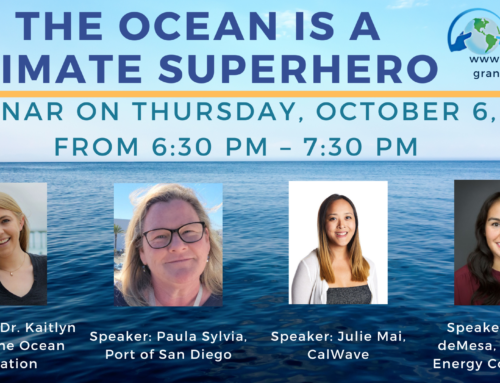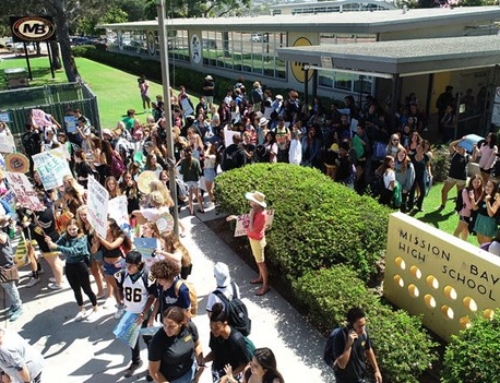
This article was contributed by Kaitlyn Lowder, STAY COOL Advisory Council Member.
Like a tsunami wave, 6,500 delegates from over 150 countries descended upon Lisbon, Portugal at the end of June for the second United Nations Ocean Conference. Throughout a week of plenaries, side events, and networking receptions, avenues to address ocean issues—ranging from harmful fishing subsidies to plastic pollution—were discussed, which culminated in millions of dollars in voluntary commitments to transform talk into action.
As the ocean plays an important role in climate regulation yet feels the effects of increasing carbon dioxide emissions, changing ocean conditions were an important topic. Ocean warming, deoxygenation, and acidification (OA) were featured in a full morning session that brought together US Climate Envoy John Kerry and leading ocean acidification experts from different sectors, including Global Ocean Acidification Observing Network co-chair Dr. Steve Widdicombe and Secretariat for the International Alliance to Combat Ocean Acidification Jessie Turner.

John Kerry speaking on the connection between the ocean and climate.
Both the UK and the US announced their intention to become members of the OA Alliance, joining more than a dozen other countries in a commitment to advance science and deploy response strategies. In his remarks, Kerry said, ” You cannot separate the ocean from the climate crisis and none of the climate crises can be dealt with without the ocean solutions and vice versa.”
This link between the ocean and climate was a hot-button issue throughout the week in the form of the debate over deep sea mining. While metals that can be found in some areas of the seabed could be employed for battery production as we continue to shift towards all things electric, it’s irrefutable that this would cause irreversible damage to these habitats and result in biodiversity loss, even as researchers are still continuing to document new species with each expedition. While some countries in the Pacific

The plenary hall, with tables for each member state to make formal interventions.
Islands, such as Nauru, are forging ahead with plans to allow mining in their exclusive economic zones (potentially to counteract losses from ongoing sea level rise), other island nations including Palau, Fiji, and Samoa highlighted their intentions to support a moratorium on deep sea mining. This moratorium would hold until more is known about the environmental impact of mining and whether new technology may reduce the perceived need to extract these resources for energy storage.
Despite the fact that the waters of Pacific nations make up 10% of the ocean, delegates from this region and other lesser-resourced countries (known as Small Island Developing States in UN terminology) were not equally represented at the conference. In looking around the halls and event tents, the Global North had most of the seats at the table. In some cases, delegates could not receive visas in time, despite formal accreditation from the UN, and in others, there were not the resources to support international travel. The need to support capacity to carry out ocean science across the globe was a theme heard in many spaces, which represents a relatively recent shift in actively discussing how to ensure those who have contributed the least to global issues can represent themselves as solutions are debated.

Indian Ocean youth and established researchers joined Sylvia Earle for a panel at Oceanarium Lisboa.
Additionally, youth voices were also actively elevated through a pre-conference Youth and Innovation Forum in Cascais and a few events where representatives were invited to speak. In total, while overall progress remains slow, the 2022 UN Ocean Conference represented an important marker in the push to better include the ocean in the UN and climate discussion while better connecting those around the globe who care about it.
For more information on the conference outcomes, including the Lisbon Declaration, see this press release. The third UN Ocean Conference is planned to be hosted by France and Costa Rica in 2025.
This article was contributed by Kaitlyn Lowder, STAY COOL Advisory Council Member.



